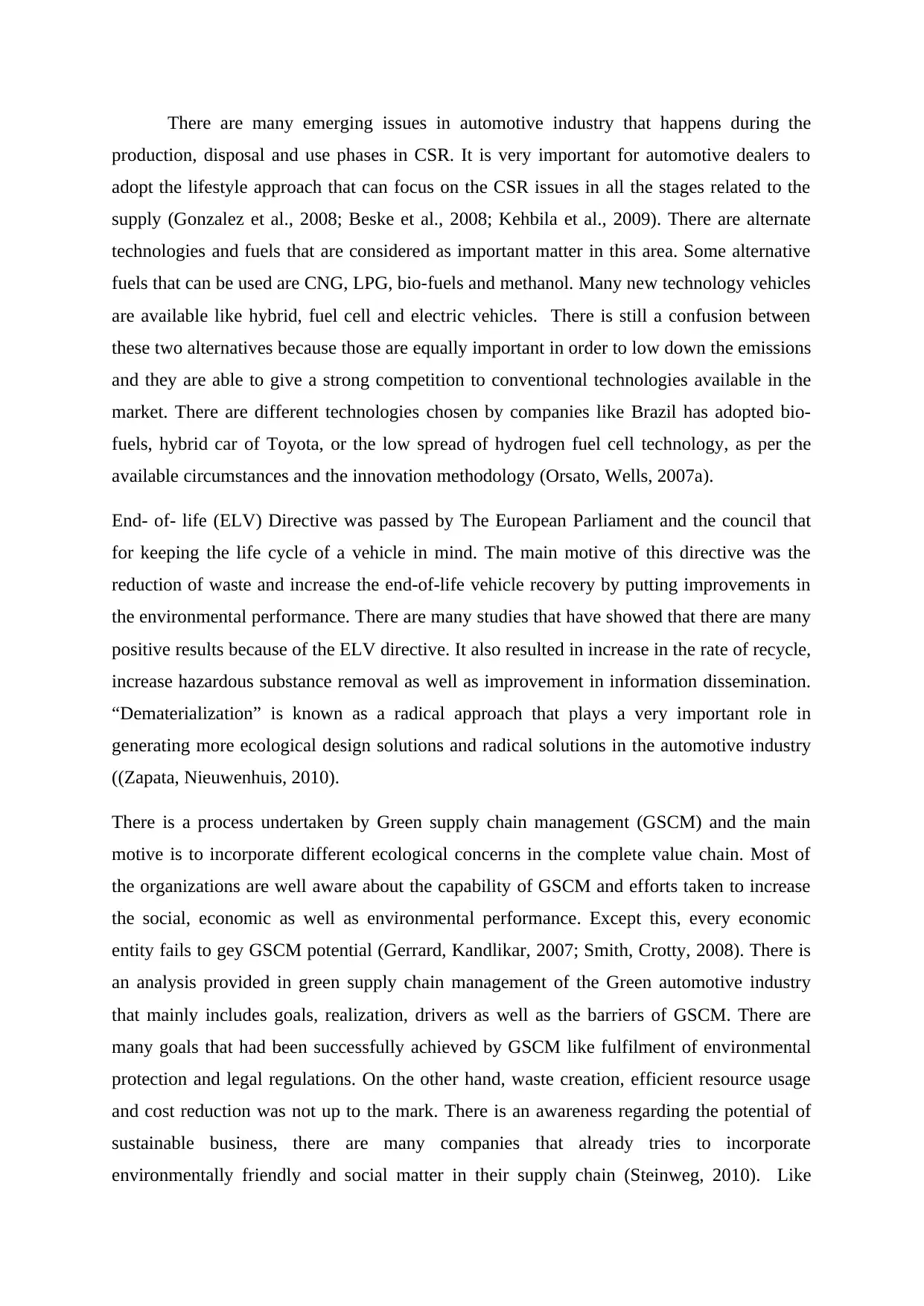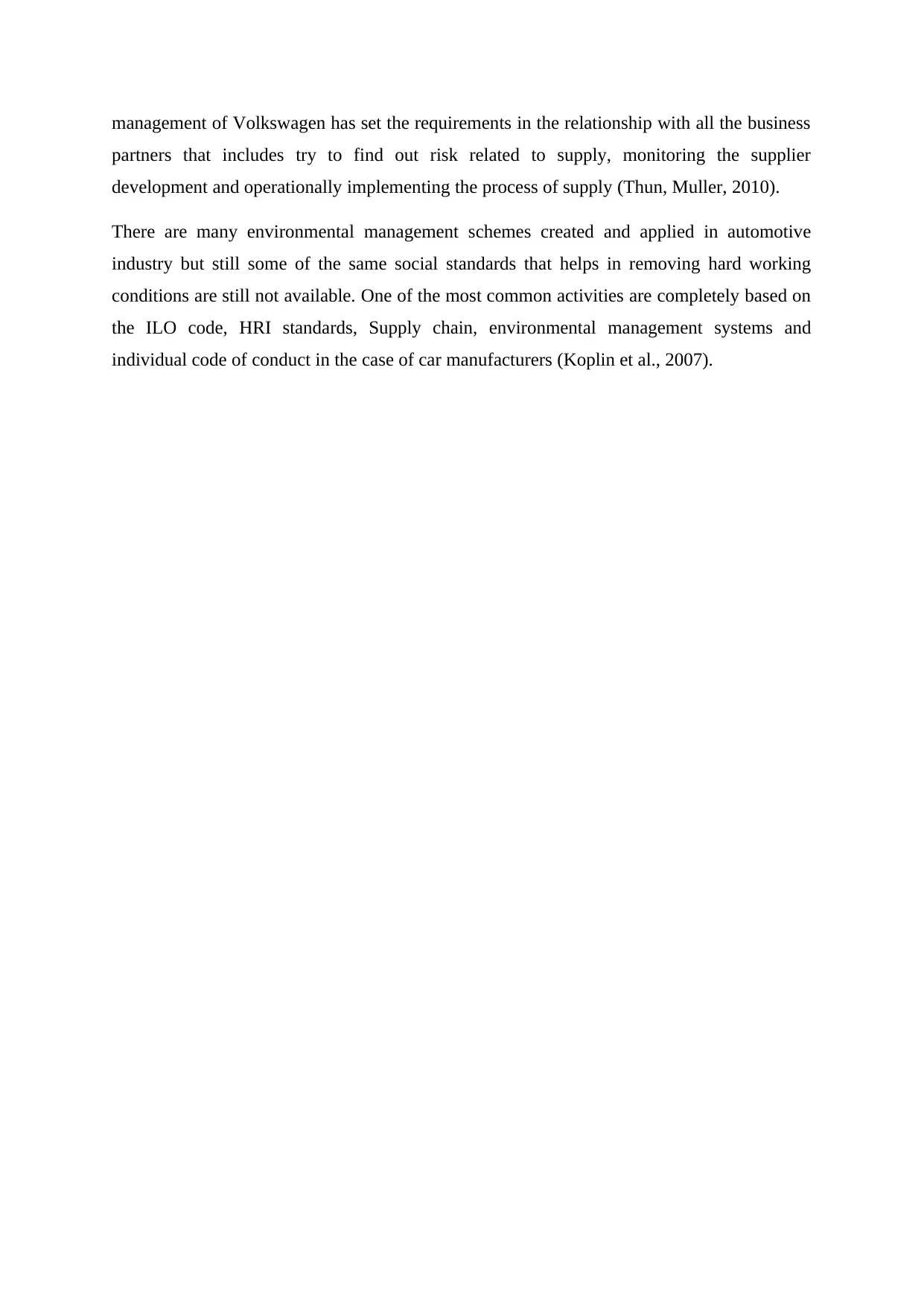Emerging CSR Issues in Automotive Industry: Lifecycle Approach Report
VerifiedAdded on 2022/09/10
|2
|639
|20
Report
AI Summary
This report analyzes the emerging Corporate Social Responsibility (CSR) issues within the automotive industry, focusing on the production, use, and disposal phases. It emphasizes the importance of a lifecycle approach for automotive suppliers, incorporating CSR considerations throughout the supply chain. The report highlights alternative technologies and fuels, such as CNG, LPG, biofuels, and electric, hybrid, and fuel cell vehicles, discussing the ongoing debate regarding their emission reduction capabilities and market competitiveness. It examines the impact of the End-of-Life Vehicle (ELV) Directive on waste reduction, vehicle recovery, and environmental performance. Furthermore, the report explores the role of Green Supply Chain Management (GSCM) in integrating ecological concerns across the value chain, and the goals, drivers, and barriers associated with its implementation. The analysis also touches upon environmental management schemes and social standards within the automotive sector.
1 out of 2




![[object Object]](/_next/static/media/star-bottom.7253800d.svg)